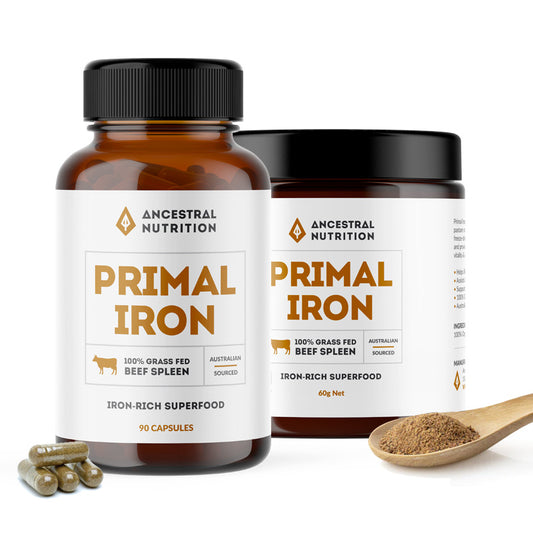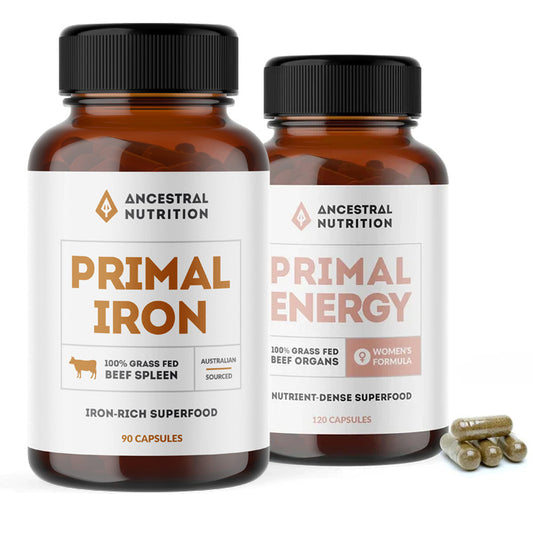PCOS and the Role of Nutrition: A Whole-Body Approach
article by Ancestral Nutrition
Polycystic Ovary Syndrome (PCOS) is a complex condition characterised by hormonal imbalance and metabolic challenges. While the exact causes are still being researched, many people explore how lifestyle and nutrition may support general wellbeing alongside guidance from a healthcare professional.
One area of growing interest is how nutrient-dense foods may help support overall health. Rather than focusing solely on symptom management, many take a holistic approach that includes nutrition, physical activity, sleep, and reducing environmental exposure to synthetic chemicals.
Nutrients That Support General Wellbeing
A number of vitamins and minerals play important roles in the body’s natural functions. For example:
- Vitamin A (Retinol): Supports healthy skin, vision, immune function, and cell growth. Found in animal-based foods such as liver.
- Iron: Important for red blood cell formation and energy production.
- Vitamin B12 and Folate: Support normal cell division, metabolism, and nervous system function.
- Zinc and Selenium: Contribute to immune function and act as antioxidants in the body.
Organ meats like beef liver, kidney, and heart naturally contain many of these nutrients. These traditional foods have long been consumed in cultures around the world as a way to obtain concentrated nutrition.
Lifestyle Factors and PCOS
For people living with PCOS, incorporating positive lifestyle habits can be an important part of their wellness journey. Examples include:
- Strength Training: May support muscle tone and metabolic health.
- Sleep Hygiene: Maintaining a regular sleep schedule and creating a restful environment can support overall wellbeing.
- Environmental Awareness: Some individuals choose to reduce exposure to common synthetic chemicals found in certain plastics and personal care products.
While these changes aren’t intended as treatment, they can be part of a proactive, self-care routine in consultation with your healthcare provider.
Whole Food Supplements as a Convenient Option
For those who prefer not to prepare organ meats, freeze-dried beef organ supplements can provide a practical alternative. Our Primal Energy range is made from 100% grass-fed and grass-finished Australian cattle. They are organic, hormone-free, antibiotic-free, and GMO-free, and are carefully freeze-dried to preserve their nutritional profile.
These products may be used as a convenient addition to a nutrient-rich diet and a lifestyle focused on balance and wellness.
Always Seek Professional Advice
Everyone’s needs are different, especially when it comes to conditions like PCOS. Please speak with a qualified health professional before making any changes to your diet, supplement routine, or lifestyle.
Learn more about our beef organ supplements and how they support a food-first approach to wellbeing.












